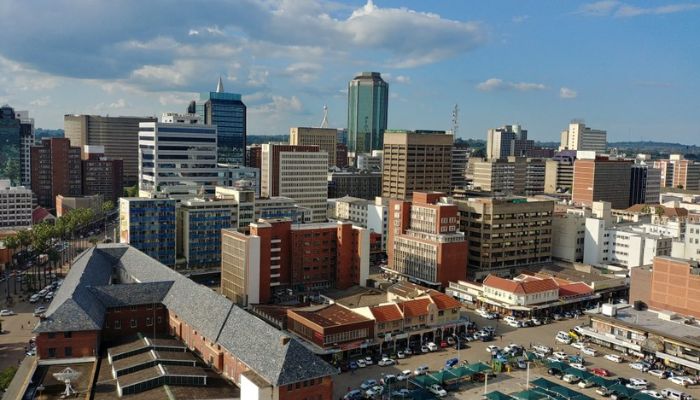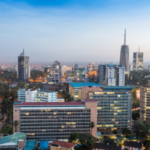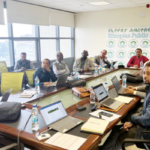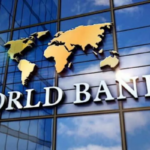The International Monetary Fund (IMF) has concluded a mission to Zimbabwe to advance discussions on the country’s Staff-Monitored Program (SMP). A team led by Mr. Wojciech Maliszewski visited Harare from 30 January to 13 February 2025 to engage with government officials and stakeholders. The discussions focused on economic stabilisation efforts, fiscal adjustments, and Zimbabwe’s international financial re-engagement.
Following the mission, Mr. Maliszewski provided an overview of Zimbabwe’s economic situation. He noted that economic activity was recovering after the El Niño-induced drought. Growth slowed from 5.3 per cent in 2023 to an estimated 2 per cent in 2024 due to reduced agricultural output, lower electricity production, and declining prices for key mineral exports, including platinum and lithium. However, strong remittances supported domestic trade, services, and construction, improving the current account surplus to an estimated US$500 million (1.4 per cent of GDP) in 2024.
The ZiG willing-buyer willing-seller (WBWS) exchange rate remained stable following its introduction in April 2024, with month-on-month inflation averaging 2.3 per cent. The currency weakened in September but regained stability due to monetary policy tightening. Fiscal pressures intensified due to the transfer of the Reserve Bank of Zimbabwe’s (RBZ) quasi-fiscal operations to the Treasury. While strong revenue collection helped limit the 2024 budget deficit to 1 per cent of GDP, the government accumulated domestic expenditure arrears, leading to emergency spending cuts. Economic growth in 2025 is projected to rise to 6 per cent due to improved agricultural output and better terms of trade.
Read also: African Energy Week to unlock $30bn+ in investments from G20 nations
Key focus areas of the SMP
Zimbabwe’s authorities requested an SMP to stabilise the economy and facilitate international financial re-engagement. The primary objective of the program is to anchor macroeconomic stability based on policy recommendations from the 2024 Article IV consultation.
IMF discussions on the SMP focused on several areas, including adjustments to the fiscal position to avoid monetary financing and new arrears while establishing a foundation for durable fiscal consolidation. The talks also covered fiscal risks outside the budget, including the operations of the Mutapa Investment Fund. Further discussions included assessing the effectiveness of the monetary policy framework for the ZiG and implementing reforms to strengthen economic governance.
International financial re-engagement remains critical for Zimbabwe’s debt resolution and arrears clearance. The Structured Dialogue Platform (SDP) is central to achieving debt sustainability and accessing concessional financial support. The IMF mission noted that the SMP would play a role in enhancing policy credibility and advancing Zimbabwe’s reform agenda within the SDP framework.
Read also: AfDB approves $31m to boost climate resilience in four African countries
IMF’s role and next steps
The IMF continues to provide policy advice and technical assistance in revenue mobilisation, expenditure control, financial supervision, debt management, economic governance, and macroeconomic statistics. However, Zimbabwe remains ineligible for IMF financial support due to its unsustainable debt and external arrears.
An IMF financial arrangement would require a comprehensive restructuring of Zimbabwe’s external debt, the clearance of arrears, and a reform plan that ensures macroeconomic stability, inclusive growth, poverty reduction, and strengthened economic governance.
The IMF mission engaged with key stakeholders, including the Minister of Finance, Economic Development and Investment Promotion, Hon. Professor Mthuli Ncube, his Permanent Secretary, Mr. George Guvamatanga, the RBZ Governor, Dr. John Mushayavanhu, and the Chief Secretary to the President and Cabinet, Dr. Martin Rushwaya. Meetings were also held with senior government and RBZ officials, members of Parliament, private sector representatives, civil society groups, and Zimbabwe’s development partners.
At the conclusion of the mission, Mr. Maliszewski expressed appreciation for the “constructive and open discussions and support during the mission.” The IMF will continue working with Zimbabwean authorities to define the key parameters and modalities of the SMP in the coming months.









